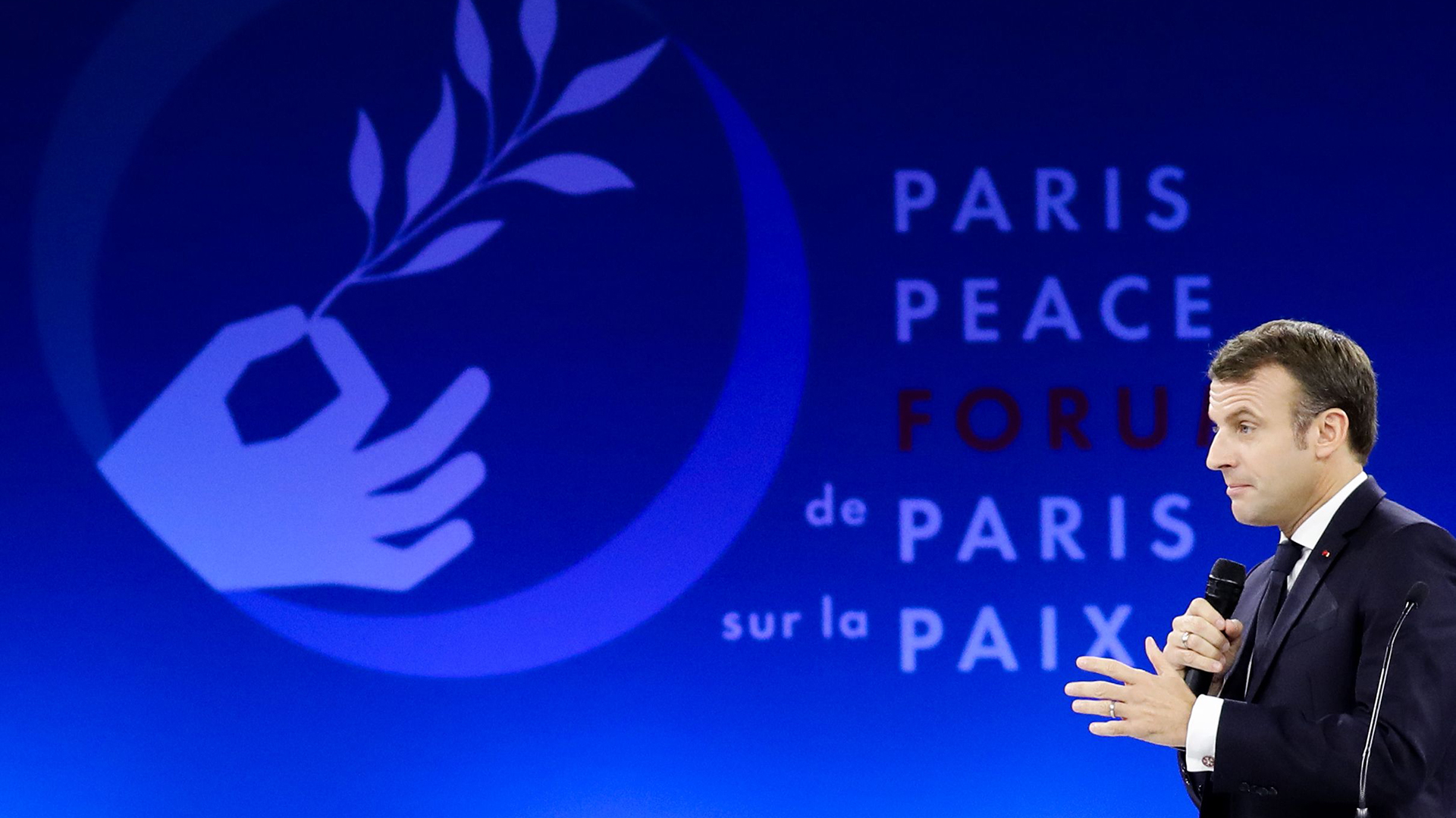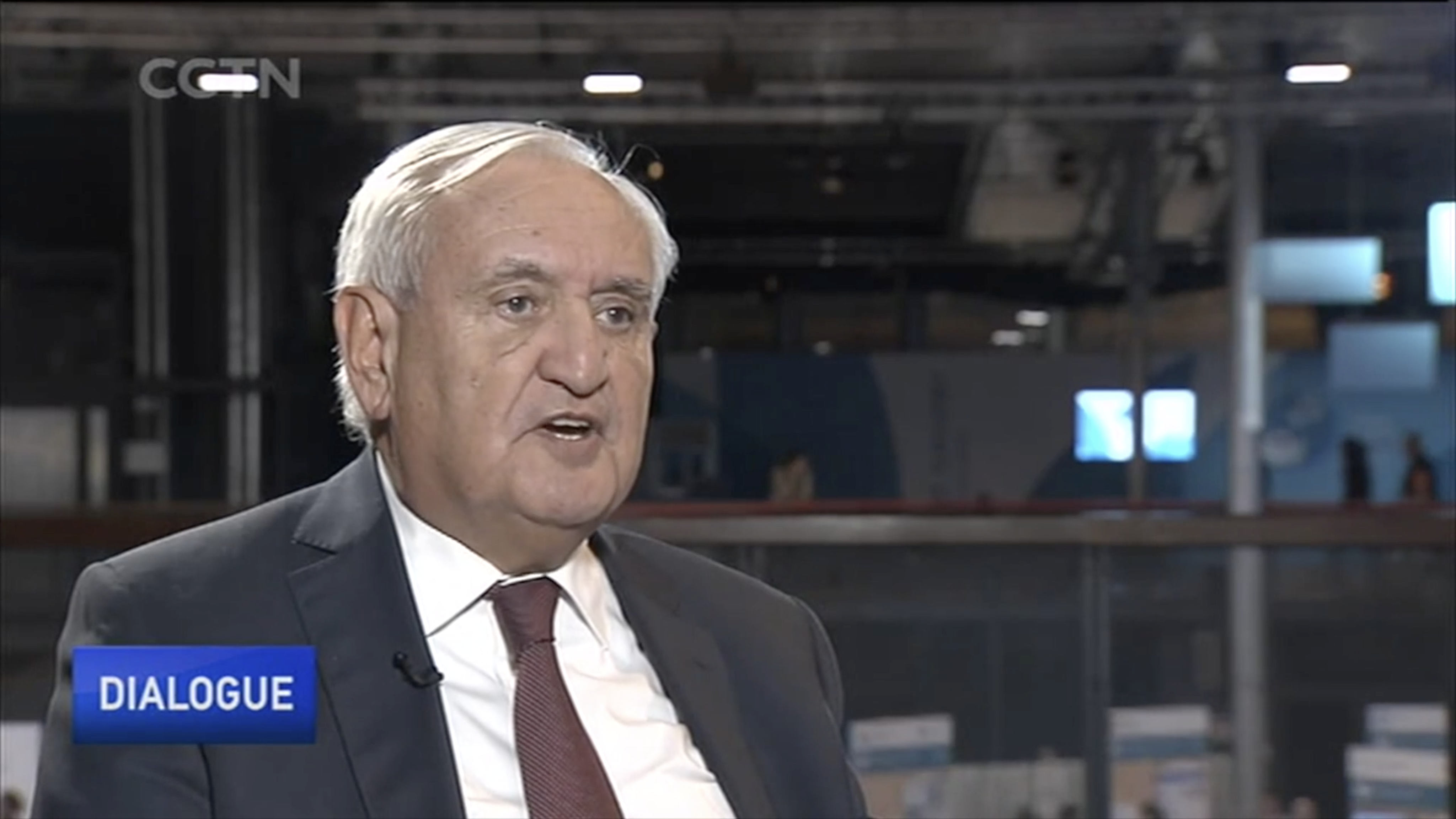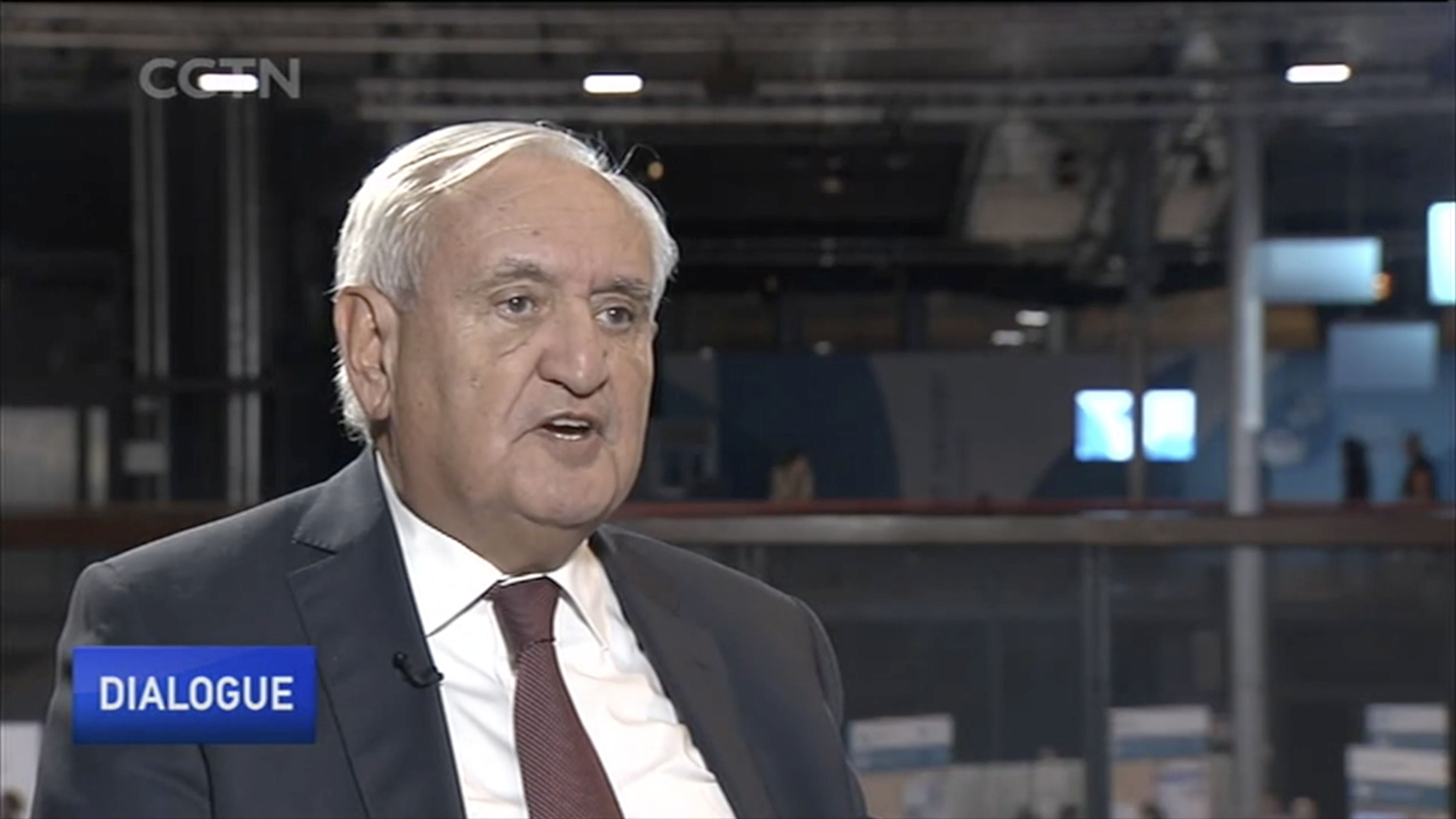03:29

The second Paris Peace Forum, a two-day event aiming to provide possible solutions for global challenges, was held in France from November 11 to 13. At the invitation of the French side, Chinese Vice President Wang Qishan attended the forum.
Wang confirmed at the forum China's stance in global governance and advocated the principle of extensive consultation, joint contribution and shared benefits.
Facing the danger of unilateralism, populism, escalating trade tensions and the U.S. withdrawal from the Paris Agreement, powerful voices at both the Paris Peace Forum and the BRICS summit in Brazil, have helped to push back these trends and reaffirm the significance of multilateralism.
Solving problems is the way to build peace
Pascal Lamy, president of Paris Peace Forum and former WTO chief, explained that this year's forum does not aim to replace the existing system, which is based on sovereigns, treaties, organizations and institutions, but to supplement it through initiatives by non-state actors, cities, businesses, civil society organizations and big academic institutions that are willing to address global issues through specific equations.
"So, it's a sort of solution-based, bottom-up approach instead of a top-down diplomatic approach," said Lamy.
He clarified that the largest antagonism is grounded on economic and social hardship, as well as problems existing in most places across the world. He said they are not solved yet, and as a result of that, the problems translate into violence, antagonisms and conflicts. Therefore, "solving problems is the way to build peace, and we are in the solving problem business."
Democracy: Both a problem and a solution?
For Lamy, democracy means that people have the ballot to decide whether their government is doing well or not. According to him, if people believe a government is not doing well, then it is out. That is why Trump got elected and Brexit referendum took place because people in the U.S. and the UK were unhappy about the way they were being treated after the economic crisis.
"So, we are back to this question of what makes people happy or unhappy, which is what they have the freedom to do in a democratic system," Lamy said. He added that governments have to be better at making people less unhappy so that the majority will vote for them.
00:57

Multilateralism vs. unilateralism
"We disagree with the actual position of the United States because we are thinking that we need more cooperation than tensions," said former French prime minister Jean-Pierre Raffarin. He further explained that the only way against the trade war is global cooperation, so we need to discuss how to develop it together and avoid unilateralism and protectionism.
According to Raffarin, France and the U.S. were allies in history, but now there are a lot of issues the two differ on.
"We have a lot of difficulties with the U.S. We don't agree when Mr. Trump support Brexit. We don't agree when Mr. Trump goes out the agreement for Iran. We don't agree when Mr. Trump goes out of the agreement of Paris about climate change," Raffarin said.
03:45

French President Emmanuel Macron said at the Paris Peace Forum, "The world needs more cooperation, not less, to face today's challenges."
"We have to carry on, launching new initiatives, not to compete with multilateral institutions, but to add to their actions," Macron said.
Raffarin supplemented that the world is balancing, and we don't want to have only one partner. Also, we don't want to have conflicts, and we are in favor of cooperation.
"We have to change to protect the multilateralism, and we have to discuss with the [emerging countries] to develop a new vision of multilateralism," he said. "We want to protect multilateralism. We don't support unilateralism."
Dialogue with Yang Rui is a prime time daily English talk show on CGTN. The 30-minute talk show covers a wide range of domestic and international topics, providing a balanced and critical perspective on current affairs and analysis within the framework of cross-cultural and multi-disciplinary comparisons.
Schedule: Monday-Sunday
Time (GMT): 0330, 1130, 1930
(If you want to contribute and have specific expertise, please contact us at opinions@cgtn.com.)